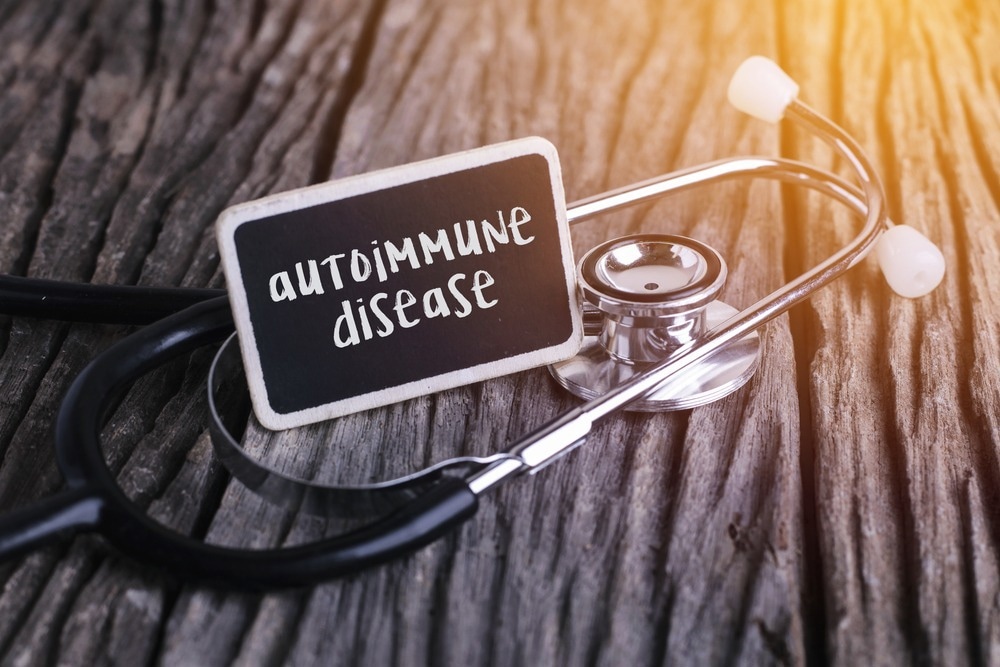In a recent study published in Arthritis & Rheumatology, researchers examined immune reactions to severe acute respiratory syndrome coronavirus 2 (SARS-CoV-2) among B cell-depleted autoimmune patients who concomitantly administered glucocorticoids.
 Study: SARS-CoV-2 immune responses in B cell depleted patients with autoimmune disease. Image Credit: nelzajamal/Shutterstock
Study: SARS-CoV-2 immune responses in B cell depleted patients with autoimmune disease. Image Credit: nelzajamal/Shutterstock
Background
B cell depletion is a well-established therapeutic approach in musculoskeletal and rheumatologic disorders, B cell hematologic malignancies, and various autoimmune diseases. Nevertheless, B cells are essential for triggering a protective response after an infection or vaccination. Since the 1970s, it has been established that glucocorticoids decrease T and B cell activation, preventing the development of adaptive immune reactions against infections.
According to a study by Dr. Niu and colleagues, long-term glucocorticoid use reduces the effectiveness of the CoV disease 2019 (COVID-19) vaccine and makes people more susceptible to SARS-CoV-2 infection. In addition, earlier analyses showed that patients with immune-mediated inflammatory disease who use glucocorticoids have a higher risk of COVID-19 and infection-related mortality and morbidity. Additionally, evidence suggests that COVID-19 outcomes are poorer during broad-spectrum immune suppressive therapies such as B-cell depleting medications and glucocorticoids.
About the study
In the present work, the investigators sought to determine if concurrent glucocorticoid therapy could impact COVID-19 vaccination responses that were reduced in rituximab-treated individuals with autoimmune illness.
Results, discussions, and conclusions
The team observed no significant exposure to glucocorticoid medication in the present group when examining whether baseline glucocorticoid treatment could have augmented decreased immune responses to SARS-CoV-2 vaccines or infections. Consequently, only three patients received concurrent glucocorticoid therapy: one COVID-19 vaccinee and two virus-infected patients. In addition, glucocorticoid doses were modest, averaging 4.6±3.8 mg of prednisolone per day. Thus, it is unlikely that prior glucocorticoid usage was accountable for the defective immune reactions to SARS-CoV-2 infection and vaccination.
The use of glucocorticoids in conjunction with the infusion of rituximab was another possible source of glucocorticoids among the volunteers. This ascribes to a single injection of 25 mg prednisolone combined with the rituximab infusion.
Previous research on patients with shock and asthma episodes, where short-term systemic bolus glucocorticoids were utilized often, has not shown any evidence that such treatment affects how well patients respond to their tetanus and influenza vaccinations. Existing studies also depicted that short-term glucocorticoid therapy did not impact the immune reaction to the SARS-CoV-2 vaccine. Hence, there was no reason to believe that a single glucocorticoid dose substantially contributes to the reported decreased humoral immune reactions to SARS-CoV-2 among patients treated with rituximab.
The finding that T cell responses in rituximab-treated individuals with autoimmune disorders were preserved while B cell responses were significantly repressed indicates a specific impact of B cell depleting drugs instead of a general effect of glucocorticoids that would also affect T cell stimulation. These results and the observations made by Dr. Niu and colleagues, nevertheless, also imply that long-term, higher doses of glucocorticoids might pose a risk to B cell-depleted patients because, in the absence of B cells, immune reactions to infections and vaccinations largely rely on intact T cell reactions.